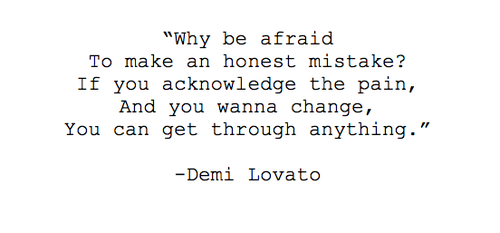Forgiveness rids us of bitterness and anger. This is not only good for your mental well being, but letting go of these emotions is better for your overall health. While we may take the time to forgive others and release those emotions that can be holding us back from accomplishing things, what about taking the time to forgive yourself? There are probably things you have been holding on to for years that you want to start forgiving yourself for. How to forgive yourself is a process that often takes more time than forgiving others might. This article will provide you with some of the steps to start forgiving yourself.

Know 10 Things to Start to Forgive Yourself
The past is the past
The first step towards forgiving yourself is accepting that what has caused you the pain, resentment or anger is now a part of your past. There is little you can do to change what has already happened. By constantly dwelling on the things you could have or should have down will not change what has happened and most times this type of thinking will only make things worse. Instead of focusing on what has happened, accept it and focus on your future.
Unrealistic expectations
The sooner you learn that not everything is going to go according to plan, the easier it will be for you to forgive yourself. Often times we get stuck on failures that occurred because of our own unrealistic expectations of ourselves. We feel guilty when things don't happen as we planned or hoped they would and this guilt is something we carry around for years. Don't put unrealistic rules in place for yourself that you know will only get broken. When you stop setting unrealistic expectations and accept that not everything is going to go right, you will be happier and be able to enjoy the moment more.
Categorize
Typically there are four categories of “failures” that make it harder so you are unable to forgive yourself - when you fail at a major like occurrence, when your actions have caused pain to another person, when your regret your life choices, when you didn't do something you know you should have.
How to forgive yourself begins by knowing what it is you need to forgive yourself for and what category it falls in. From a failing marriage, drinking too much or not saving money, these difficulties can be incredibly hard to forgive yourself for. Once you are able to categorize where your regret or anger comes from, you can begin to forgive yourself.
Acknowledge the pain
Once you have categorized what you need to forgive, you need to acknowledge what you feel. Know that what is causing you the pain isn't so much about what has happened, but about the constant regret or angry you are feeling after the event. The stress, anger, resent or regret that you feel is what actually keeps you from forgiving yourself. Once you acknowledge the pain and emotions you are feeling that are tied to the event, you can begin to heal and eventually forgive yourself.
It's not just about you
Understand that when you hold on to regret and are constantly beating yourself up over the past, you aren't just affecting yourself. Those around you are most likely getting the backlash of your anger at yourself. When we are miserable, we often and sometimes unknowingly put those around us down as well.
Not only does this resentment towards yourself harm your relationship with others, it harms your health. These negative feelings can affect your vital organs by increasing blood pressure, adding stress to your muscles, throwing your digestive tract off, and impairing your ability to concentrate and think straight. When you learn to forgive yourself, you will also reduce your risk of heart attack, depression, high blood pressure and improve your relationship with others.
Refocus your thoughts
How to forgive yourself will take some refocusing. When you find yourself thinking about your past and the regrets your feel, learn to refocus on things that matter. Stop and place your attention on something else that is more positive so you don't stay stuck in the same thought pattern. Focus on the new more positive behaviors or actions you are taking in your life.
Change your perspective
You want to constantly remind yourself of all the good things you have in your life. When you take the time each day to be thankful for all that you do have, it will be easier to forget the negative things from your past. One of the best ways you can begin to forgive yourself is by reflecting on all the positive things that happen each day. This will not only allow you to see how much you have to be grateful for, you will begin to notice all the good qualities you possess as well.
Positive Emotional Release
Positive emotion refocusing techniques help you start forgiving yourself. Through these exercises, you will begin to understand what you can do to help heal yourself and know what actions you can take towards forgiveness.
Whenever you begin to focus on the past and begin to beat yourself up over what has happened, take 45 seconds to practice this technique. Begin by closing your eyes and taking a long deep breath. Press gently on your belly button as you begin to exhale the breath. Take another long deep breath and exhale. When you inhale for a third time, visualize a peaceful place or someone you love as you inhale, focus on all the details of the place or person and notice how you feel. When you feel a calm or peacefulness, ask how you can make yourself feel better. Focus on the peaceful feeling until you receive an answer. Once the answer comes, open your eyes and you will know what actions you need to take.
Appreciate your flaws
We all have flaws. We all have made mistakes. We all mess up sometimes. How to forgive yourself will require you accepting your flaws and that you are not the only one who makes mistakes. Take every mistake or failure as a lesson learned.
Take care of yourself
The most important thing to keep in mind is that you need to take care of yourself. Create a self-care routine that will help you feel confident, relaxed and happy with your life. Learn to treat yourself with kindness just as you would treat your closest friends or family members.


View All Comments /Add Comment